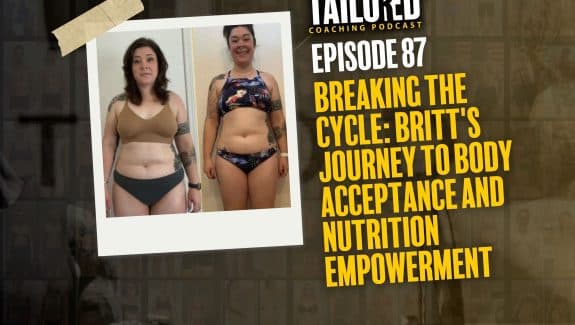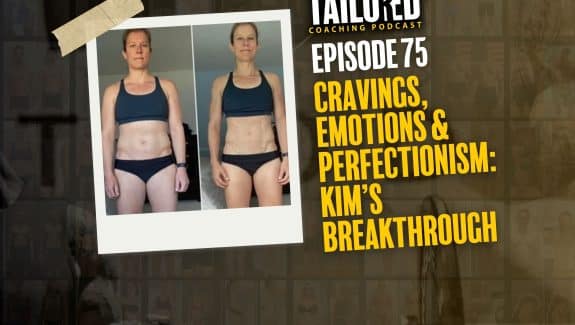
Sugar has been scaring us for decades, from the claims of it impacting and being linked to things like type 2 diabetes, heart disease, and of course – obesity. And it makes sense as to why we’d think that…
In the last 40 years obesity has continued to rise along side the consumption of sugar in Americans. But something most don’t realize is that in the last 10 years, sugar intake has leveled off and yet obesity rates continue to rise.
What we need to always remember, with any study in this industry really, is that correlation does not mean causation. A good example of this, in which I’m taking from Layne Norton but apparently can be found on Google pretty easily, is that there is a strong correlation between the number of Nicholas Cage movies that are released and the number of deaths in a swimming pool. Do we really think that people are drowning because of his movies? I highly doubt it (Although I do hate his movies… Gone in 60 seconds is the ONLY good one).
So what I’m really trying to say here is that we cannot assume everything just because a study is published. In fact, a great example is what the media just released about the sugar industry influencing the studies done 50 years ago. They demonized fat intake because of that which we’ve realized in recent years, fat intake can be extremely healthy for us – if done in moderation.
Lets sit on the media topic for a bit… Think about the news. The news picks out negative topics to feed into and almost always puts the source of blame onto a specific group.
The same goes for the nutrition industry! Think about the history of dieting and media… First it was fat intake that was bad, then sugar, then it was anything processed, then it was carbs in general, but then we found out it was really just gluten, only to realize later that dairy was the culprit, until we came to find out how bad grains were for us….
See, the list goes on and on and at the end of the day, no matter what you consume in extreme excess, it can be toxic and cause weight gain or health issues. Many times that’s how they come to these conclusions. They inject rats with a lethal dose of something, it messes the rat up pretty bad and then they tell the world about how toxic this “thing” really is.
If all of the above is actually true, we can’t eat anything! I remember seeing a study that was hilarious and really was just put together to show that these claims were all bogus – the study showed that eating anything, at anytime, could have an association with cancer! They proved that anything we consume, touch, surround ourselves with, or inject ourselves with, could be toxic or deadly if we do so in extreme excess.
Another example was a study they did on rats with sugar to prove that “Sugar is toxic to the body”. They injected 450g of sugar into the rat’s blood stream and it showed to be deadly.
First of all, who the f#ck is injecting sugar into their bloodstream?! Let alone 450 grams of the shit! (Which by the way, is about a full pound of sugar). To add to that, do we know that 450 grams would affect a full size human the same way it would affect a little rat? We can’t be sure until a study is done, which won’t happen, but my guess would be no (Don’t try it either, that’s dumb as can be).
But ok, lets keep moving on here…
My goal with this article is to show you that sugar can be just fine in your diet. You can be healthy while consuming sugar regularly and you can stay lean or even lose weight while consuming it. But it all comes down to having a caloric intake and balance that is healthy and promotes fat loss.
Think about when someone drinks a can of Coke, do they drink that for lunch? Or do they drink it while eating a sub sandwich and side of chips? Clearly, the later. Which tells us that 90% or more of people who eat high sugar diets are consuming extra sugar ON TOP of their normal diets.
This also helps justify that high sugar foods and drinks are typically things that are not filling what so ever. Beverages, chips, snacks, and processed items are the predominant sources of sugar intake and none of them contain much fiber, protein, or density to them – which makes them very un-filling and easy to over consume, when we over consume calories we gain weight and body fat, which can easily raise risks of type 2 diabetes, heart disease, and obesity.
The International Journal of Obesity did a study that showed no difference in weight loss or BMI in participants consuming 5% of their calories from sugar and 10% of their calories in sugar.
Now the argument there is that 5-10% is a pretty low amount of sugar in the diet, which I agree with. It caught my attention because there was absolutely zero difference in weight loss, but 5-10% isn’t enough to flood the diet with sugar. That leaves plenty of calories to be sure that vitamins, minerals, protein, and fiber is being consumed at the right amount to promote weight loss efficiently still.
But then, Carmen did a 6-month study with 300 participants split into a high sugar group and low sugar group and again, they found zero difference in weight loss or body composition. The argument there is that people could have strayed from the diet slightly, which is true. But you can use that argument with almost any study done on humans, period!
University of Minnesota did another study very similar to Carmen’s and they also showed no difference in weight loss or body composition between the high and low sugar groups. The difference here was that it was highly controlled, meaning that they monitored the participants very closely and actually fed them every single meal every single day during the study.
Surwit et al. did the same as Minnesota, except with extreme sugar intakes. Something like 10g vs. 100g! The reason for no difference in weight loss or body composition is simple… Calories were equated for and controlled.
Ok, so now it is extremely clear… Right?? You can lose weight, keep a lean and healthy body composition, and still reach your physique goals while consuming sugar – AS LONG AS calories are equated, which doesn’t just mean tracking calories. It also means getting enough fiber, protein, minerals, etc. Which can be easy while still consuming sugar.

So now we have two camps reading this,
Camp #1 – “Dope! I’m exiting out of this article, time to eat some skittles! #IIFYM”
Camp #2 – “Ok, you made your point… But that doesn’t mean your health will be good! I’m more focused on my health measures than my body fat level.”
First of all, I agreed with camp #2. I truly did not consume sugar very often if at all, because I was more worried about health. I have a goal to live til I’m over 100 and I know that means I need to be healthy. On top of that, if you’re not healthy you will not perform, and if you do not perform at your best, you won’t look great naked.
But then I kept studying… See I’m in 3 different research based groups, study tons of books, and read shit like Examine.com and PubMed for fun… I know, weird. But for my clients out there, you’re welcome 😉
The studies above all looked into health measures as well and as long as calories are controlled there was no difference in the high vs. low sugar diets with blood pressure, blood lipids, blood glucose, insulin, thyroid hormone, or any markers of inflammation.
The only one that found anything at all was the Surwit study, which showed a very small difference in cholesterol – remember, that study was 10g vs. 100g of sugar daily and still only showed a very small difference. But one thing to consider here, would be that the low sugar group probably consumed higher amounts of fiber and fiber binds to cholesterol, which can cause more cholesterol to be excreted in the feces. So would it be different and show no cholesterol effect, even with the crazy high sugar intake, if fiber was regulated? Can’t be sure, but possibly.
I guess my big point here is simple… Sugar doesn’t necessarily cause poor health or obesity at all, over consumption of food (calories) in general is what causes that. Is sugar that thing causing this for you? That could be likely and very possible, which could mean cutting back on sugar is a better option for you. But not because sugar is evil and only stores as body fat or causes diabetes… It’s because we as a society over eat it and let our calories get too high due to that bad habit.
Sugar will NOT make you fat or cause poor health if:
- You consume it in moderation and not excess, consuming in excess is likely to lead to craving more, a calorie surplus, and lack of other quality nutrients within your calorie limit or diet.
- You track your calories!
- Eat enough voluminous, filling, and high fiber foods so that you’re not abnormally hungry on a regular basis.
- Have a plan!
The key is simple, focus on 80-90% of your diet being nutrient dense whole foods and when you want something with higher sugar or that isn’t “wholesome” necessarily, you’ll have room for it because you planned it accordingly.
I realize that many people do not have the planning and calculations to determine where their calories and macros should be at, nor do they know the proper habits to follow for success.
But even more so, many people simply do not have the support and accountability to stick to the plan week after week, month after month, and continually see progress.
If you struggle with this at all, fill out the form below and get on a Free Exclusive Coaching Call with me and we’ll determine a plan that works for you and your lifestyle before hanging up.
References:
- West JA, de Looy AE. Weight loss in overweight subjects following low-sucrose or sucrose-contating diets. Int J Obes Relat Metab Disord. 2001 Aug;25(8): 1122-8
- Saris WH, Astrup A, Prentice AM, Zunft HJ, Formiguea X, Verboeket-van de Venne WP, Raben A, Poppitt SD, Seppelt B, Johnston S, Vasilaras TH, Keogh GF.
- Raatz SK, Torkelson CJ, Redmon JB Reck KP, Kwong CA, Swason JE, Liu C, Thomas W, Bantle JP. Reduced glycemic index and glycemic load diets do not increase the effects of energy restriction on weight loss and insulin sensitivity in obese men and women. J Nutr. 2005 Oct;135(10):2387-91.
- Layne Norton; www.biolayne.com (Members Only Access)


























































































































































































































































































































































































































































































